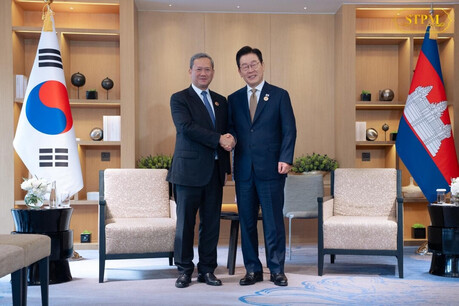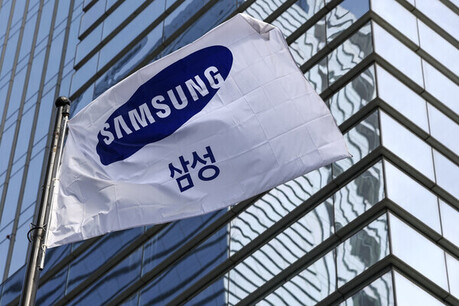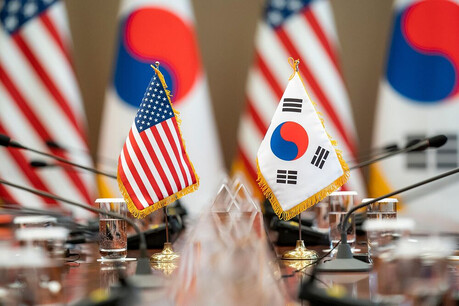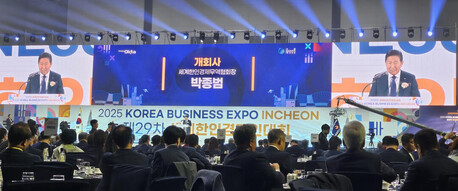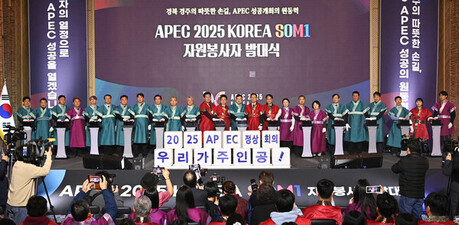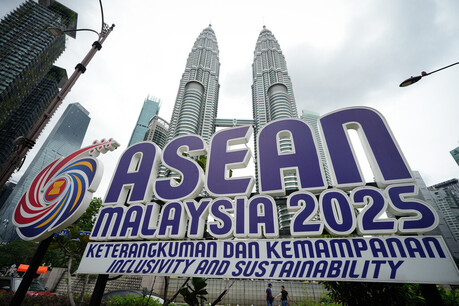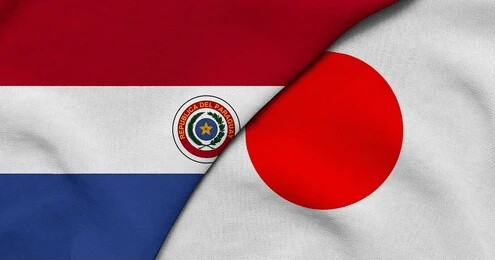
Amidst a global order shifting in unpredictable directions, strengthening ties with a consistently reliable partner is an essential task for resource-scarce Japan. In particular, nations that share universal values such as democracy and the rule of law and maintain consistent diplomatic stances are invaluable assets to Japan. Paraguay, located in the heart of South America, is one such country with significant potential. Not only is it traditionally a pro-Japanese nation, but it is also politically stable and can be a trustworthy partner in food and energy security.
Surprisingly, despite its central location in South America, Japanese media coverage of Paraguay is extremely rare. Mario Toyotoshi, the Paraguayan Ambassador to Japan, ironically explains this reality by quoting President Santiago Peña: "President Peña often says, 'Paraguay's problem is that it has no problems.' That's why we don't appear in the news."
Ambassador Toyotoshi's Extraordinary Journey
Mario Toyotoshi's father, Toyotoshi Naoyuki, was the founder of the Toyotoshi Group, a company primarily focused on Japanese automobile sales. He also served as the Paraguayan Ambassador to Japan from 2009 to 2017. Born in Paraguay as the son of first-generation Japanese immigrants, Mario Toyotoshi graduated from International Christian University (ICU) in Japan.
After briefly working at Toyota, he returned to Paraguay after just one year to help the family business. He then spent over 30 years as a businessman in Canada and elsewhere before being appointed as the Ambassador to Japan at the request of the President, marking an extraordinary career path.
A Century of Friendship, Deepening Solidarity
Paraguay has a population of approximately 6.86 million and an area of about 407,000 square kilometers, roughly 1.1 times the size of Japan. Approximately 70% of its population is under the age of 30, boasting a young and vibrant demographic. Diplomatic relations with Japan began in 1919, and Japanese immigration began in earnest in 1936.
After World War II, in 1959, the two countries signed an immigration agreement allowing up to 85,000 Japanese immigrants. Currently, about 10,000 people of Japanese descent or Japanese nationals reside in Paraguay. Furthermore, Japan has long been one of Paraguay's major providers of Official Development Assistance (ODA).
During the Great East Japan Earthquake in 2011, the Japanese-Paraguayan community in Paraguay donated 100 tons of soybeans. These were processed into tofu and delivered as relief supplies to the affected areas. It is also widely known that soybeans became a major Paraguayan export thanks to the efforts of Japanese immigrants.
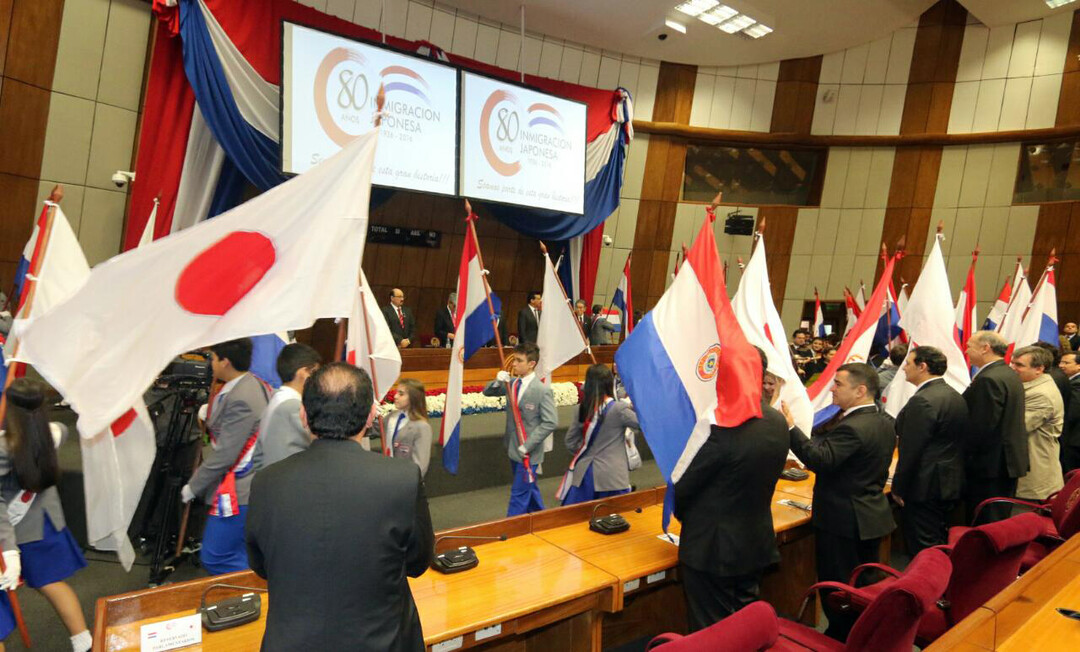
Stable Politics, Steady Growth
Paraguay enjoys long-term political stability. Its GDP growth rate for 2024 is projected at 3.9%, surpassing the Latin American average of 2.6% (figure before Donald Trump's tariff announcements). Its grain self-sufficiency rate exceeds 270%, one of the highest in the world.
Paraguay's electricity is 100% supplied by hydroelectric power through the Itaipu Dam, one of the world's largest hydroelectric dams. Operated jointly with Brazil, the surplus electricity generated by this dam is exported to Brazil, making it one of Paraguay's main exports.
Unyielding Diplomacy Amidst Pressure from China and Russia
Ambassador Toyotoshi emphasizes Paraguay's foreign policy: "Paraguay's approach is value-based, so there is very little ambiguity. We don't change our policies based on popular opinion."
This firm stance is most evident in its relationship with Taiwan, with which it has maintained diplomatic ties since 1957. While most countries have switched recognition to China, Paraguay is currently the only country in South America among the 12 nations that diplomatically recognize Taiwan.
Paraguay is surrounded by powerful pro-China nations such as Brazil, Argentina, and Bolivia, and faces constant pressure from China. In December 2023, an incident occurred where a Chinese diplomat, who had received a visa to attend a UNESCO conference, met with opposition lawmakers and publicly urged Paraguay to establish relations with China. The Paraguayan government responded firmly by canceling his visa and expelling him. This is a clear example of Paraguay's broad-based resolve.
Ambassador Toyotoshi notes, "We have paid a significant price for our value-based foreign policy."
For example, during Russia's invasion of Ukraine in 2022, Paraguay clearly condemned it as an act of aggression against a sovereign state. In retaliation, Russia significantly reduced its imports of Paraguayan beef, which was then Paraguay's second-largest beef export market. Taiwan then stepped in to import the surplus beef, becoming Paraguay's largest beef importer. However, China continues its efforts to directly court Paraguayan cattle ranchers.
Unwavering Support for Taiwan
Paraguay's continued support for Taiwan is rooted in the historical context of the Cold War. Under the Alfredo Stroessner dictatorship (1954-1989), Paraguay aligned with the United States' anti-communist policy and received strong military and economic support. When US aid decreased due to demands for democratization during the Kennedy administration in the late 1960s, Paraguay deepened its relations with Taiwan and Japan.
Even after democratization in 1989, Paraguay has steadfastly maintained its ties with Taiwan. Ambassador Toyotoshi explains, "Paraguay values those who value us," adding, "Diplomacy has become even more important since democratization."
Cooperation between the two countries spans various fields, including Taiwan's Official Development Assistance (ODA), investment in electric bus factories, and technician exchanges. In August 2023, Taiwanese President Lai Ching-te attended President Peña's inauguration, and in response, President Peña attended President Lai's inauguration in May 2024, demonstrating their strong friendship.
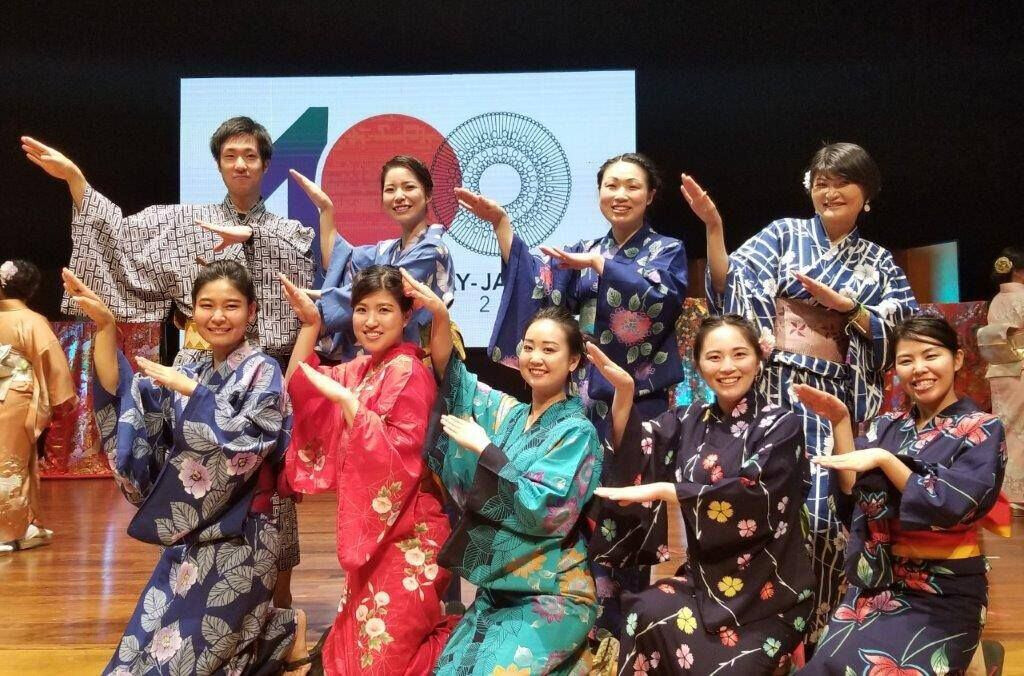
New Trade Routes and Opportunities
A new East-West Transcontinental Corridor, approximately 3,000 km long and traversing the South American continent, is under construction. This is a distance comparable to that from Hokkaido to Okinawa. Once completed, it is expected to improve regional connectivity and reduce reliance on the costly and congested Panama Canal. Ambassador Toyotoshi estimates that this corridor could reduce shipping times by about three weeks. Plans to build a liquefied natural gas (LNG) pipeline along the corridor are also under discussion.
This could be a golden opportunity for Japan. Paraguay hopes that Japan will invest in the free trade zones of Iquique and Antofagasta in northern Chile, located at the western end of this corridor. Although these areas belong to Chile, they play a crucial role in Paraguay's Pacific access strategy. These free trade zones have the potential to grow into major logistics hubs but are currently underdeveloped.
Ambassador Toyotoshi emphasizes, "Opportunity favors the prepared mind. Paraguay is looking for investors. Many countries are showing interest, but we believe Japan should recognize the strategic importance of these ports."
The Unresolved Beef Import Ban
One of the major issues that Paraguay urgently requests from Japan is the lifting of the import ban on Paraguayan beef. Japan prohibits imports from countries where foot-and-mouth disease has occurred and is currently assessing Paraguay's risk level.
While the Ministry of Agriculture, Forestry and Fisheries states that the assessment is data-driven and takes time, seven years have already passed since the request was made, and Paraguay's patience is wearing thin. Even Singapore and South Korea, which have weaker historical ties with Paraguay, are showing interest in Paraguayan beef.
Ambassador Toyotoshi, while understanding the complex procedures, expressed his concern: "Personally, I am very worried. Japan is Paraguay's most important partner, but we are falling behind other countries."
In February 2025, a tasting event for Paraguayan beef was held for Japanese companies in Taipei. This is because beef processed in Taiwanese facilities certified by their Ministry of Agriculture, Forestry and Fisheries can be legally imported into Japan. This was a creative solution devised by officials from Japan, Taiwan, and Paraguay.
While stabilizing relations with countries that do not share the same values, such as China, is important, deepening ties with countries that do share values is an urgent task that can no longer be delayed. In an uncertain world, Paraguay's steadfast friendship could be a shining beacon for Japan.
[Copyright (c) Global Economic Times. All Rights Reserved.]

















